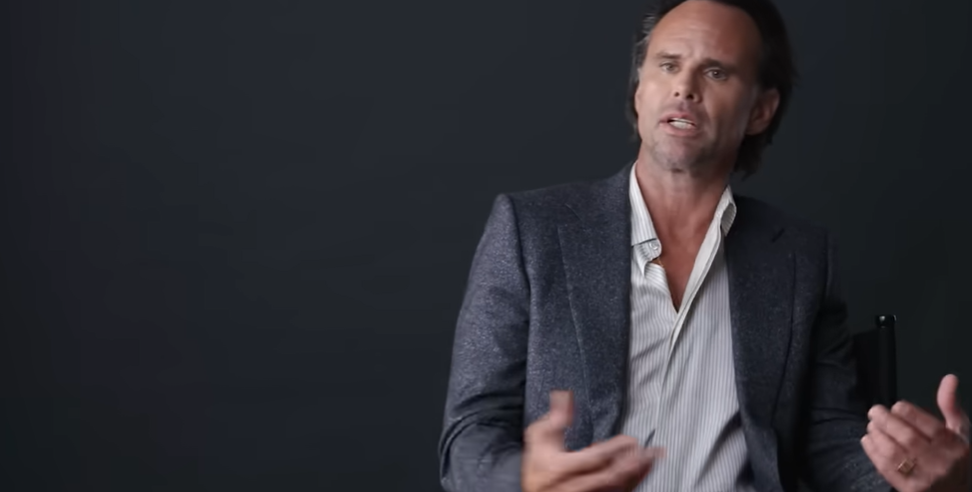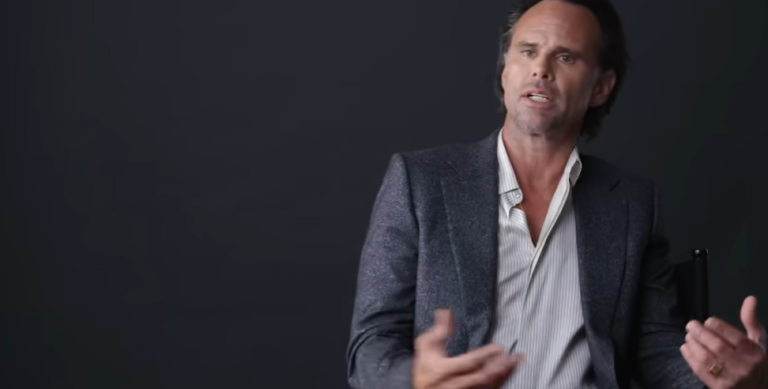Walton Goggins didn’t have a single breakthrough performance that made him famous. Rather, he built up his fame gradually, layer by layer, creating one of the most enduring acting careers of his time. His projected $12 million net worth in 2025 is a testament to his extraordinarily successful strategy of artistic longevity as well as his financial success. Even though Hollywood frequently applauds erratic behavior and exaggeration, Goggins stands for something extremely uncommon: constancy combined with artistic audacity. His portrayals are more than just parts; they are intricate works of art that frequently veer between villainous guile and eccentric charm.
The way Goggins has subtly positioned himself with high-profile projects that value substance over glitz is what makes his career path so inventive. From his recent metamorphosis in Amazon’s Fallout to his Emmy-nominated performance as Boyd Crowder in Justified, Goggins never stops changing, stretching, and surprising. By making these calculated decisions, he has maintained his relevance while also significantly increasing his market value, demonstrating that financial success and artistic integrity are not mutually exclusive.
Walton Goggins: Personal and Career Snapshot
| Attribute | Detail |
|---|---|
| Full Name | Walton Sanders Goggins Jr. |
| Date of Birth | November 10, 1971 |
| Birthplace | Birmingham, Alabama, USA |
| Occupation | Actor, Producer |
| Active Years | 1989–present |
| Known For | Justified, The Shield, Fallout, The Hateful Eight, Ant-Man and the Wasp |
| Spouse | Nadia Conners (m. 2011); Leanne Kaun (d. 2004) |
| Children | Augustus Goggins |
| Awards & Nominations | Emmy Nomination (Justified), Oscar (The Accountant as producer) |
| Estimated Net Worth (2025) | $12 million |
| Reference | Celebrity Net Worth |
Born in Alabama and raised in Georgia, Goggins brought a touch of Southern toughness to his initial auditions. His journey has been especially resilient, despite not being conventionally glamorous. His portrayal of Shane Vendrell in The Shield, which garnered high appreciation for his nuance and moral ambiguity, introduced him to the public. The role created a foundation in addition to garnering attention. From there, Goggins established a highly effective niche in a field that is frequently dominated by typecasting.

He was able to get into Tarantino’s Django Unchained and The Hateful Eight by using his distinct presence. Like Tim Roth or Michael Madsen before him, he was positioned among the director’s trusted ensemble with these remarkably significant roles that weren’t cameos. Goggins’ ability to alternate between charm and menace in a single frame was what made these performances so powerful. Casting directors are still drawn to him because of this dichotomy.
Goggins has accepted roles in contemporary streaming giants during the last ten years. His versatility has become his hallmark, whether he is voicing Cecil Stedman in the animated blockbuster Invincible or playing the eerily humorous Baby Billy in The Righteous Gemstones. In contrast to many actors of his generation, he has capitalized on the creative renaissance of television by starring in highly regarded and socially relevant series.
His involvement with Fallout serves as an example of artistic development. Goggins portrays a multifaceted ghoul-like survivor with a backstory as intricate as any HBO antihero, set in a post-apocalyptic future influenced by the best-selling video game. The tone of the series makes his emotional and physical metamorphosis very evident. Goggins placed himself at the nexus of character nuance and genre storytelling by selecting this part.
Goggins is not only an actor but also a co-founder of Ginny Mule Pictures, the production company that made the Academy Award-winning short film The Accountant. He has expanded his influence into production through strategic alliances and imaginative risk-taking, which is both a financially wise and artistically rewarding move. Producing has become especially helpful for actors who want to keep control of their story.
Interestingly, Goggins has also made astute real estate decisions. He showed that he was financially stable outside of acting gigs in 2021 when he sold a house in Los Angeles for a healthy profit. These kinds of investments, which are frequently overlooked, are the ones that protect long-term wealth in a notoriously volatile sector.
Goggins has gone through both tragedy and rebirth in his personal life. His later performances were probably influenced by the contemplative period that followed the death of his first wife, Leanne Kaun, in 2004. Since then, he remarried Nadia Conners, a filmmaker, and the two of them have a son named Augustus. His characters, many of whom bear their own burdens, seem to be given more depth by the emotional weight of that journey.
Goggins stands out in discussions about longevity and acting value—not because he’s the most outspoken or bankable, but rather because of his extraordinary consistency. His wealth is based on decades of meaningful work rather than being inflated by temporary celebrity. Take Timothy Olyphant’s career path as a comparison; he is similarly well-respected, discreetly wealthy, and extremely picky. Both actors show how deliberate creativity, as opposed to crowd-pleasing conformity, is frequently the key to long-term relevance in Hollywood.
Goggins appears to be set up for even more success in the years to come. At a time when viewers want multifaceted storytelling, his reputation for adding both realism and unpredictability to every scene is catching on. He has established a standard for layered performance that others strive to reach, whether on HBO, Prime Video, or in movies.


